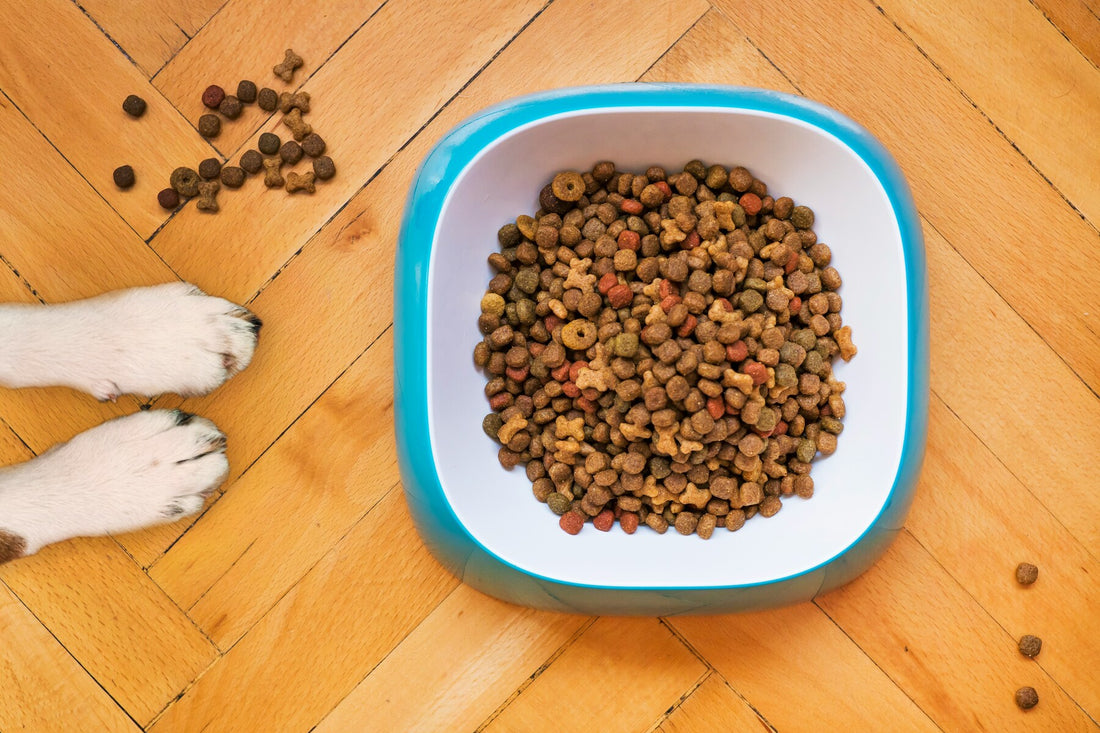How Long Does It Take for Dogs to Digest Food

Understanding your dog’s digestive system is an important aspect of ensuring their health and happiness. In this article, we will tell you all you need to know about dog digestion. From the initial gulp to the end of the process, we’ll be diving deep into what happens inside your dog’s digestive tract and how various factors influence this vital function.
The Digestive Process in Dogs
The canine digestive system is a complex and efficient machine designed to break down food, absorb nutrients, and eliminate waste. This process is essential for your dog’s overall health, providing the energy and building blocks needed for every aspect of their bodily functions.
Key Components of the Digestive System
The journey of digestion begins in the mouth, where food is first consumed and broken down by chewing. Saliva moistens the food, making it easier to swallow. The esophagus then transports the food to the stomach through a series of muscular contractions known as peristalsis.
In the dog’s stomach, gastric juices and enzymes break down the food further, initiating the process of nutrient extraction. The partially digested food moves into the intestines, where the majority of nutrients are absorbed.
The small intestine plays a crucial role in this stage, with different sections (the duodenum, jejunum, and ileum) working together to absorb proteins, fats, and carbohydrates. The large intestine, including the colon, is where water is reabsorbed, and the remaining material is formed into feces, which are eventually expelled through the rectum and anus. This entire process ensures that your dog receives the necessary nutrients while efficiently disposing of waste.
Factors Affecting How Dogs Digest Food
Several factors can influence how long it takes for dogs to digest food, ranging from their physical characteristics to the type of food they consume.
Size and Breed
The size and breed of a dog can significantly impact the speed of digestion. Larger breeds may have a slower digestive process due to the greater volume of food they consume and the proportionally longer digestive tract. Conversely, smaller breeds and puppies might digest food more quickly, given their faster metabolic rates and smaller meals.
Age
Age is another critical factor in digestion time. Puppies, with their rapid growth and high energy needs, may process food more quickly than adult dogs. Senior dogs, on the other hand, might experience a slowdown in digestive efficiency due to age-related changes in metabolism and organ function.
Type of Food
The composition of a dog’s diet plays a vital role in how efficiently they can digest food. High-quality dog food that is rich in easily digestible proteins and nutrients can be processed more swiftly than diets high in fillers and indigestible fibers. Wet food may also move through the digestive system more quickly than dry kibble due to its higher moisture content.
Activity Level
A dog’s level of physical activity can influence digestion as well. Regular exercise helps stimulate the digestive tract, promoting more efficient food processing and waste elimination. Sedentary dogs may experience slower digestion and are at a higher risk of constipation and other digestive issues.
Health Conditions
Certain health conditions, such as gastrointestinal disorders, metabolic diseases, and food sensitivities, can significantly alter a dog’s digestion time. These conditions may either speed up the process, leading to diarrhea or slow it down, resulting in constipation or other digestive discomforts.
Tips for Promoting Healthy Digestion
Ensuring your dog has a healthy digestive system is crucial for their overall well-being. Here are some practical tips to help promote efficient digestion and prevent common digestive issues.
Proper Diet
A balanced and appropriate diet is foundational to your dog’s digestive health. High-quality dog food that matches your dog’s age, size, breed, and energy requirements can significantly impact their ability to digest food efficiently.
Foods rich in easily digestible proteins, essential fats, and carbohydrates, along with the right balance of vitamins and minerals, support the digestive process. Incorporating fiber into your dog’s diet can also promote healthy bowel movements, but it’s important to find the right balance, as too much fiber can lead to loose stools, while too little can cause constipation.
Probiotics
Probiotics are beneficial bacteria that support a healthy digestive system, helping in the maintenance of normal bowel movements. Using probiotic supplements like Bando’s Digestive Care Soft Chews can help restore and maintain the balance of healthy bacteria in their gut, which is essential for promoting healthy and smooth digestion.
Regular Exercise
Physical activity plays a vital role in maintaining a healthy digestive system. Regular exercise helps stimulate intestinal activity, aiding in the smooth passage of food through the digestive tract. It can also help manage your dog’s weight, reducing the risk of obesity-related digestive issues.
Activities can range from daily walks and playtime to more structured exercise, depending on your dog’s health, breed, and preferences. Remember, a dog that is physically active is more likely to have a healthy digestive system.
Hydration
Adequate water intake is essential for digestion. Water helps break down food, allowing nutrients to be absorbed more efficiently and waste to be eliminated effectively. Ensure your dog has constant access to fresh, clean water, and encourage them to drink regularly.
This is especially important if your dog eats dry food, which has a lower moisture content than wet food. Monitoring your dog’s water intake can also help you identify any changes that may indicate health issues, such as increased thirst being a symptom of diabetes or kidney disease.
Routine Veterinary Care
Regular check-ups with a veterinarian are crucial for monitoring your dog’s digestive health and identifying potential issues early. A vet can provide personalized advice on diet, exercise, and care to support your dog’s digestive system.
They can also diagnose and treat any underlying conditions that may be affecting digestion, such as food sensitivities, gastrointestinal disorders, or metabolic diseases. Keeping up with vaccinations and parasite control is also essential for preventing infections that can disrupt your dog’s digestive health.
Book a Consultation Call with Our Team of Experts
Understanding your dog’s digestive health can be complex, with many factors influencing how long it takes for your furry friend to digest food. Whether you’re going through dietary changes, addressing digestive issues, or simply aiming to enhance your dog’s overall well-being, having expert guidance can make all the difference.
If you’re seeking personalized advice tailored to your dog’s unique needs, our team of veterinary professionals is here to help. With extensive experience in canine nutrition, digestive health, and wellness, we’re equipped to provide you with the support you need to ensure your dog’s digestive system is functioning optimally. Schedule a consultation with us today.






